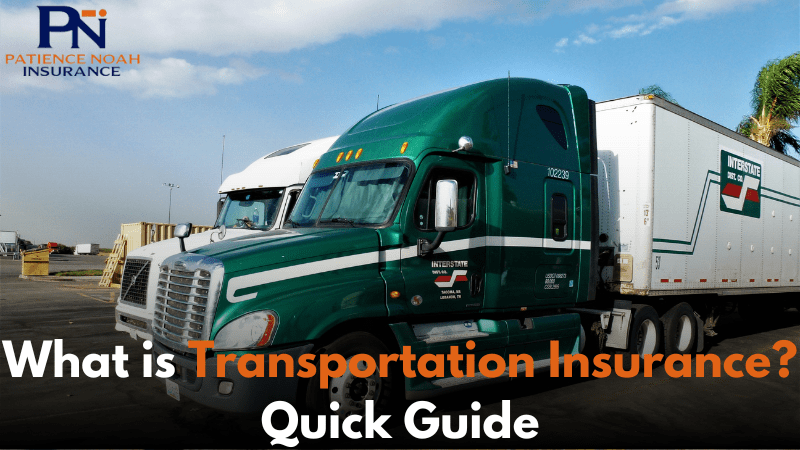It’s not just about financial protection; vehicle insurance has become a nationwide legal requirement. Every state has defined the minimum coverage limits on the insurance policies for drivers.
That’s why uninsurance or under-insurance can put you into severe lawsuits. License suspension, fines, penalties, and other legal liabilities are usually reported.
What is Auto Insurance, and Why Is It Essential?
This ultimate policy is designated to back you up in unforeseen circumstances. To avail of that, you must sign a contract with any insurance company you choose. All terms and conditions are listed on that piece of paper, which you use to cover the costs in exchange for premiums in case of accidents.
It may seem like an extra expenditure. However, it prepares vehicle owners for unexpected downfalls. Without the proper insurance, all your savings, home, and other valuable assets can be taken to cover the losses. Besides protecting your automobile, it also covers the injured person’s medical expenses and third-party property damages.
Legal Requirements
You might need the following documents:
Proof of Insurance
A driver must carry insurance proof, a driver’s license, and registration documents. It is an insurance ID card that can protect you behind the wheel. The proof must incorporate the following content:
- Insurer’s basic data
- Residential and contact details of the insurance broker or agent
- Policy number and effective dates
- A complete description of the registered vehicle( model number, manufacturing year, and identification number)
- Details of the insured vehicle owner
- Dates, limits, and types of included coverages.
Minimum Required Liability Coverage
Foreign Mission Community members must submit the following content:
- The insurance policy’s contract details
- A valid copy of the insurance company’s binder.
- Insurance certificate
Auto Insurance Requirements
Each state has specific requirements of insurance that all individuals must comply with. Whether you’re a business owner, a regular employee, or not unemployed, signing up for basic car insurance is mandatory if you own a car. You can also add optional insurance for more benefits.
Compulsory Requirements
Liability Coverage
Owning basic vehicle liability insurance is a must. It covers three primary aspects: body injury, property damages, and uninsured motorist coverage.
Minimum liability insurance tells you the precise limitations offered under this policy. Moreover, It is usually documented as three digits separated by a forward slash. Let’s say 25/50/20 or $25,000/ 50,000/20,000. The minimum property damage and bodily injury insurance measure the figures in order.
Bodily Injury Liability Insurance
In case of an accident, it will cover the medical expenses up to the stated limits. Although the coverage may not shield your vehicle, it still saves you from the claims of the injured victims.
Furthermore, It usually covers accidents caused by vehicle owners, their family members, or anyone using the vehicle with the owner’s permission.
Property Damage Liability Coverage
Your insurance will pay for the accidental harm to property. Besides commercial property deterioration, it also pays for destroyed government possessions like traffic signals, light poles, or signposts.
Uninsured And Underinsured Motorist Coverage (UM/UIM)
UM is mandated by almost half of the states. Calling it a blessing in hit-and-run cases would not be wrong. When an insured motorist strikes your vehicle, the UM will cover your body injuries.
It also takes charge of your injured family members or passengers wounded in that accident. However, the coverage does not include damage to property.
Suppose the negligent driver has lower insurance limits. In that case, your UIM coverage will safeguard you and your family against body injuries. It is not mandatory. However, interested auto owners must purchase a $50,000 coverage limit policy per person.
Additional Requirements
Coverage for Physical Damage
Regarding lease-purchase vehicles, the lender usually mandates buying physical damage coverage. It includes;
Collision Coverage
As the name implies, it covers collision-related damages. Crashing of your car with another vehicle or any stationary object falls into this category.
Comprehensive Coverage
It pays for the damages other than collision. Deteriorations from fire, falling objects, water, wind, glass breakage, or striking animals are included. You must carry a comprehensive collision coverage bundle to recover from flood damages.
Personal Injury Protection (PIP)
Almost 20% of the states require it. PIP covers all the medical or funeral expenses of the wounded passengers or dead person. It includes hospital charges, X-rays, rehabilitation, surgical, nursing, and other treatment expenditures incurred within one year.
Minimum Auto Insurance Requirements
Here’s a chart for you to look at and compare the minimum insurance requirements in some states:
| Texas | Rhode Island | Maryland | Illinois | Connecticut | Alabama | Massachusetts | |
| Bodily Injury Liability (Per Accident) | $60,000 | $50,000 |
|
$50,000 | $50,000 | $50,000 | $40,000 |
| Bodily Injury Liability (Per Person) | $30,000 | $25,000 | $30,000 | $25,000 | $25,000 | $25,000 | $20,000 |
| Property Damage Liability (Per Accident) | $25,000 |
|
$15,000 | $20,000 | $25,000 | $25,000 | $5,000 |
| Uninsured Motorist’s Coverage (Per Accident) |
|
|
$60,000 | $50,000 | $50,000 |
|
$40,000 |
| Uninsured Motorist Coverage (Per Person) |
|
|
$30,000 | $25,000 | $25,000 |
|
$20,000 |
| Uninsured Property Damage Coverage (Per Accident) |
|
|
$15,000 |
|
|
|
|
Wrap Up
Registering your vehicle for insurance is a relatively easy process. Just check on your state’s minimum insurance requirements, gather the legal documents, and select the right coverage to enjoy the utmost protection in every ride because safety comes first!















